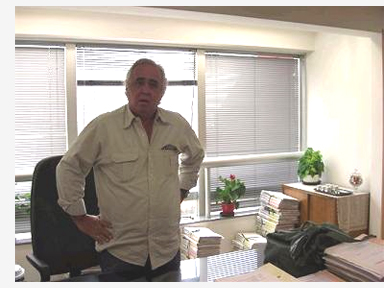Why do our judges work?
Author: Fábio Ulhoa Coelho *
Source: Migalhas.com.br, 10/03/2008
 “Migalhas”, an electronic newspaper that circulates
“Migalhas”, an electronic newspaper that circulates
law professionals, recently released an interesting article about the
Judges' work (Migalhas 1.845 - 26/2/08 - “48 hours with the judge” -
click here). He followed two days of the daily life of a judge at the Court
of Justice of São Paulo, Dr. Ruy Coppola. The conclusion of the report reinforces the
that everyone in the field knows: most magistrates work hard.
The most important issue for society that the matter raises, however,
perhaps it is another: the exhausting work of our judges has been
efficient?
Magistrates are the public agents charged with the most relevant
function of the State: to do justice. Furthermore, although it is up to you to discuss whether
receive remuneration compatible with their responsibility, they are among the
better paid public agents. Therefore, it interests the whole society
that their work is used as efficiently as possible. Much
work is not synonymous with efficiency in any activity; on the contrary,
burnout tends to erode it.
Also surrounded by centuries-old rituals and formalities, the
jurisdictional provision has not been efficient, mainly due to the
delay. Legal proceedings are eternal, to the despair and loss of
litigants, frustration and disgust of the professionals. And the culprit is easy to
point out: procedural legislation, incompatible with the complexity and dynamics of
contemporary social relations. And worse, when thinking about reforming it with a view to
increasing the speed of the process, end up producing the opposite result:
further ado.
Example with a measure introduced in the law in 1994, aimed at
specifically to shorten the judicial process: the anticipation of guardianship. On one
in a simple way, it allows the judge to decide the case from the beginning. It can be given
when the elements taken by the lawyer are so convincing that they make possible
the judge immediately confirms that the plaintiff has the right to claim.
This is an initial provisional decision, which the judge may change
if different conviction arrives after the process is fully concluded.
When introduced, the anticipation of guardianship was surrounded by great
expectancy. The premise was that the process was dragging on because the
debtor had an interest in postponing the sentence. With anticipation, the delay
the judicial process would no longer benefit him. This premise proved to be
mistaken for disregarding the lawyers' functional duty to exhaust all
legal instruments and resources in favor of the client. Thus, in
practically all processes, even when the elements presented do not
so vehemently prove the existence of the right, lawyers should request the
anticipation.
The result is the opposite of what was intended when the measure was created. After
legal provision for the anticipation of guardianship, the processes do not take
end; they are now taking too long to start. Most of them start with
at least two appeals to the Court to discuss either the concession or the
denial of the anticipation of guardianship by the judge.
Another example is in the limitation of the hypotheses of funding for the
instead of its suppression. This does not diminish; strictly speaking, it increases the volume of work
of our judges. As the lawyer has a professional duty to employ all
legal means of defense of the client, will always maintain that the legal hypothesis of
admissibility is present. It increases the work of the magistrate because he has,
rather, it must decide whether the appeal is admissible or not. If the goal is to accelerate the
process, the law should simply suppress some remedies and not just limit
the cases in which they can be offered.
Anticipating guardianship and limited resources are bad experiences.
The efficiency of the judicial provision came in and must be reconsidered.
In addition to the extensive reform of procedural legislation, other measures are
equally necessary and urgent to simplify and shorten the process
judicial system, such as, for example, the complete digitalization of the records,
turn the paper as a support. After all, what do our judges work for? Certainly
not to fulfill anachronistic procedural formalities, but to deliver
justice quickly and safely.
__________
* Jurist and Professor at PUC / SP



